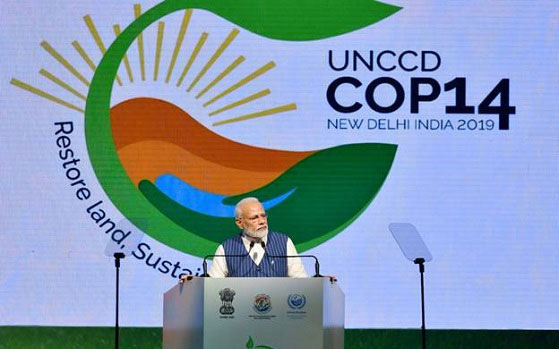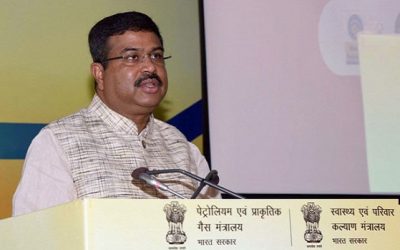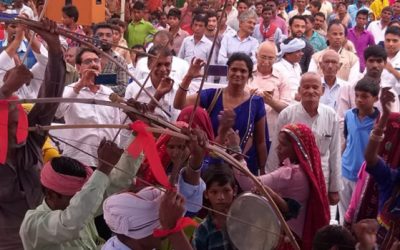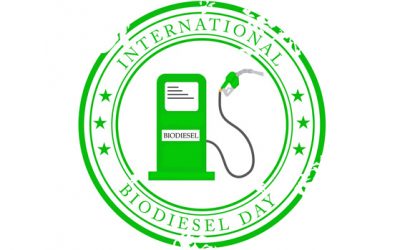Prime Minister Narendra Modi today inaugurated the High-Level Segment Meeting of the 14th Conference of Parties (COP14) to the United Nations Convention to Combat Desertification (UNCCD), at Expo Mart, Greater Noida. Ralph Gonsalves, Prime Minister of St. Vincent and the Grenadines; Amina Jane Mohammed, Deputy Secretary-General United Nations; Ibrahim Thiaw, Executive Secretary, UNCCD; Prakash Javadekar, Union Minister for Environment, Forest & Climate Change (MoEF&CC); Babul Supriyo, MoS, MoEF&CC, and other dignitaries were present at the occasion.
 The Prime Minister reaffirmed India’s commitment to addressing all the three main concerns of the Rio Conventions. He also stated that India has hosted global gatherings through the CoP’s for all the three Conventions. “Going forward, India would be happy to propose initiatives for greater South-South cooperation in addressing issues of climate change, biodiversity and land degradation,” he said.
The Prime Minister reaffirmed India’s commitment to addressing all the three main concerns of the Rio Conventions. He also stated that India has hosted global gatherings through the CoP’s for all the three Conventions. “Going forward, India would be happy to propose initiatives for greater South-South cooperation in addressing issues of climate change, biodiversity and land degradation,” he said.
Modi announced, “India would raise its ambition of the total area that would be restored from its land degradation status, from twenty-one million hectares to twenty-six million hectares between now and 2030.” This will be focused on restoring land productivity and ecosystem services of 26 million hectares of most degraded and vulnerable land, with emphasis on the degraded agricultural, forest and other wastelands by adopting a landscape restoration approach.
Modi also announced India’s proposal to setup a global technical support institute for the member countries of the UNCCD for their capacity building and support regarding the Land Degradation Neutrality Target Setting Program. “I am happy to state that India would be happy to help other friendly countries develop land restoration strategies through cost effective satellite and space technology,” he said.
Acknowledging the importance of the role of water, Narendra Modi called upon the leadership of UNCCD to conceive a global water action agenda which is central to the Land Degradation Neutrality strategy. “When we address degraded lands, we also address water scarcity. Augmenting water supply, enhancing water recharge, slowing down water run-off and retaining moisture in the soil are all parts of a holistic land and water strategy,” he noted.
The Prime Minister also advocated for the need to eradicate the menace of single use plastic. He said, “My Government has announced that India will put an end to single use plastic in the coming years. I believe the time has come for even the world to say good-bye to single use plastic.”
Prakash Javadekar in his opening remarks lauded the Prime Minister’s efforts towards green activities, “Prime Minister played a leading role in Paris Summit; he has been the guiding force behind India’s ambitious program of achieving 175 GW of renewable energy production.”
 The Environment Minister pointed out that the COP14 has emerged as a global platform to discuss matters of great importance concerning the environment. “More than 190 Countries, 100 Ministers and 8000 participants from all across the globe came together to discuss and work on promotion of land restoration and climate resilience at UNCCD COP14,” he noted.
The Environment Minister pointed out that the COP14 has emerged as a global platform to discuss matters of great importance concerning the environment. “More than 190 Countries, 100 Ministers and 8000 participants from all across the globe came together to discuss and work on promotion of land restoration and climate resilience at UNCCD COP14,” he noted.
The Prime Minister of Saint Vincent and the Grenadines, Ralph Gonsalves also spoke at length on climate change and desertification. He also acknowledged the Prime Minister for his concerted efforts in addressing these issues. “We all should stand united to resolve the Climate Change issue and make UNCCD COP14 path breaking. I acknowledge the role of Government of India & initiatives of Prime Minister Shri Narendra Modi for environment.”
Noting the five summits to be held in New York soon, Ibrahim Thiaw, UNCCD Executive Secretary, said, “the agreements we reach here about how to restore, protect and manage our land on a massive scale and how to trigger a seismic shift in private sector partnerships to make it happen can immediately help ramp up the ambition of action plans for everyone involved.”
Over the past week, various deliberations were conducted on restoration of degraded land, the Environment Minister in a Press Conference later today also announced that the Delhi declaration will be announced tomorrow which will be accountable for the actions by various countries, “The draft Delhi declaration is almost ready, discussions throughout last week was very productive; this is one area where there is more unanimity than divergence of views.”











 Union HRD Minister Ramesh Pokhriyal ‘Nishank’ will launch ‘Samagra Shiksha-Jal Suraksha’ drive to create awareness about water conservation among all school students in the country. This mega drive would be launched at Dr. Sarvepalli Radhakrishnan Auditorium, Kendriya Vidyalaya No. 2 in Delhi Cantt.
Union HRD Minister Ramesh Pokhriyal ‘Nishank’ will launch ‘Samagra Shiksha-Jal Suraksha’ drive to create awareness about water conservation among all school students in the country. This mega drive would be launched at Dr. Sarvepalli Radhakrishnan Auditorium, Kendriya Vidyalaya No. 2 in Delhi Cantt.
 World Biofuel Day is observed every year on 10th of August to create awareness about the importance of non-fossil fuels as an alternative to conventional fossil fuels and highlight the various efforts made by Government in the biofuel sector. Ministry of Petroleum & Natural Gas will organize World Biofuel Day on 10th August 2019 at Vigyan Bhavan, New Delhi. Minister of Petroleum & Natural Gas & Steel Dharmendra Pradhan will inaugurate the program. Minister of Health & Family Welfare, Science & Technology and Earth Sciences Dr Harsh Vardhan will be the Chief Guest of the function. This year the theme of the World Biofuel Day is “Production of Biodiesel from Used Cooking Oil (UCO).”
World Biofuel Day is observed every year on 10th of August to create awareness about the importance of non-fossil fuels as an alternative to conventional fossil fuels and highlight the various efforts made by Government in the biofuel sector. Ministry of Petroleum & Natural Gas will organize World Biofuel Day on 10th August 2019 at Vigyan Bhavan, New Delhi. Minister of Petroleum & Natural Gas & Steel Dharmendra Pradhan will inaugurate the program. Minister of Health & Family Welfare, Science & Technology and Earth Sciences Dr Harsh Vardhan will be the Chief Guest of the function. This year the theme of the World Biofuel Day is “Production of Biodiesel from Used Cooking Oil (UCO).”

0 Comments